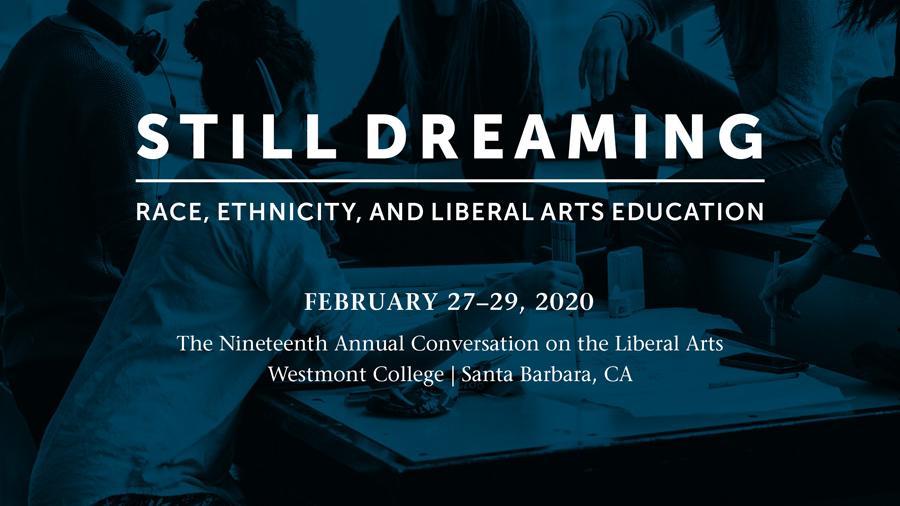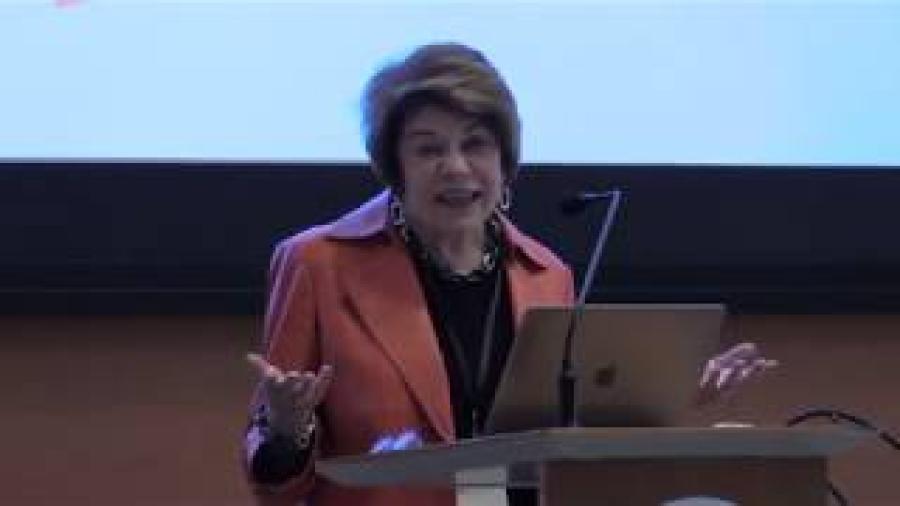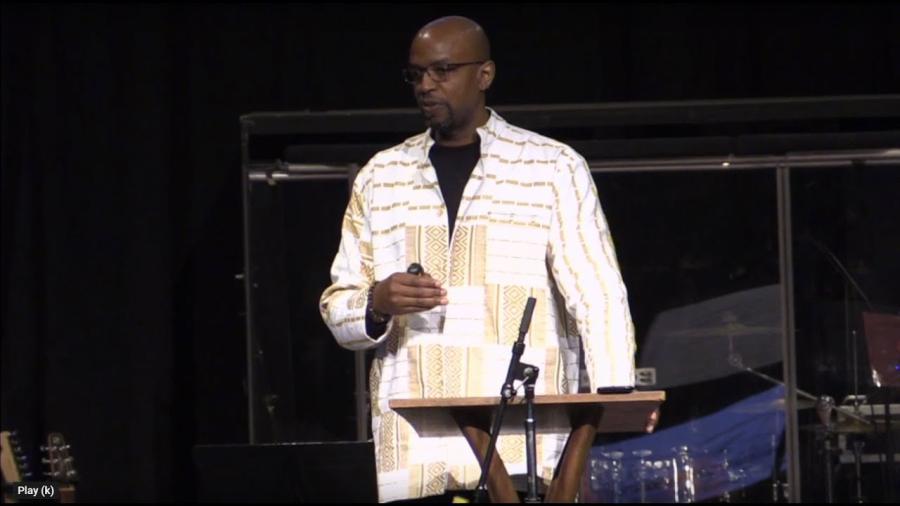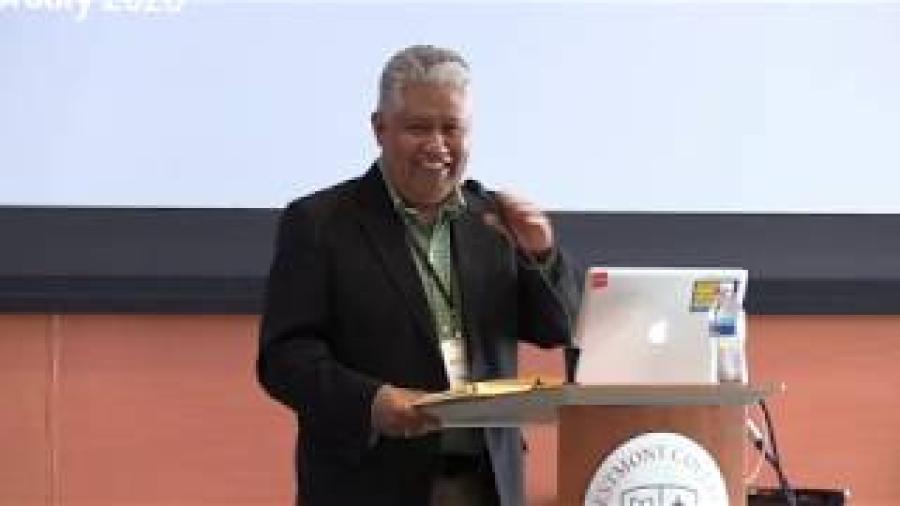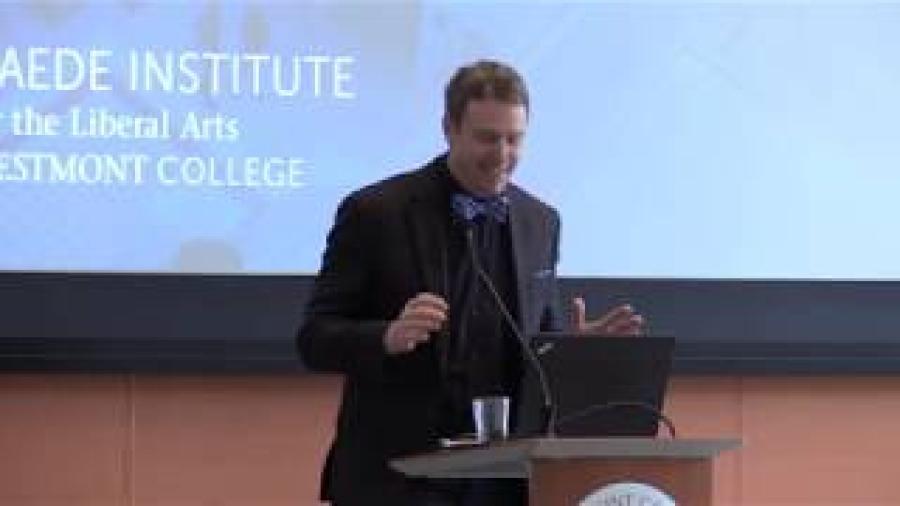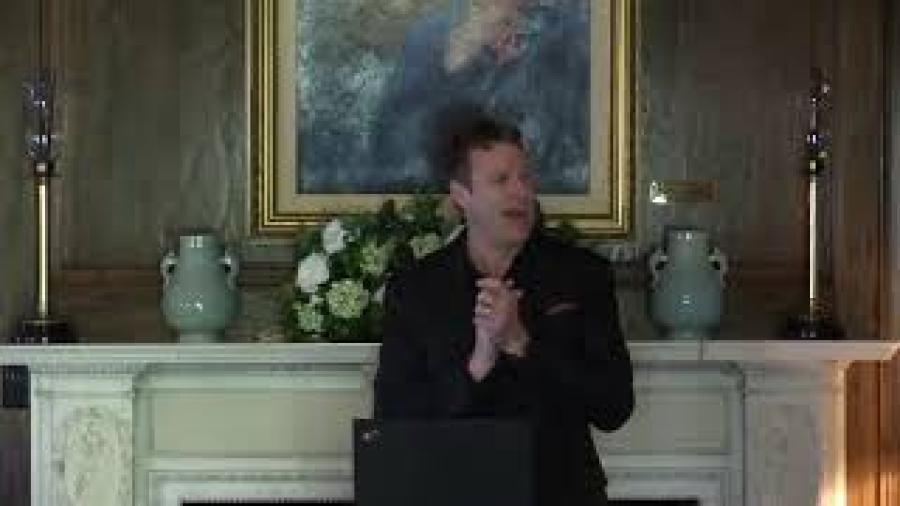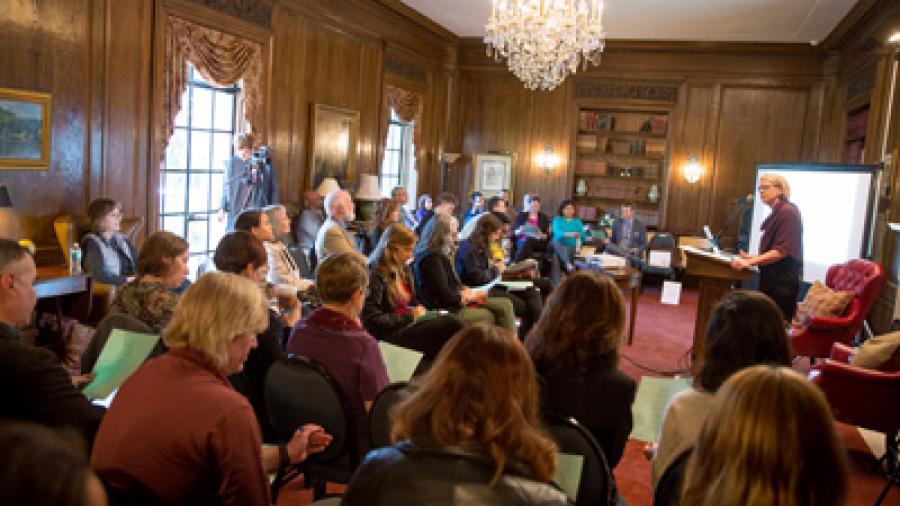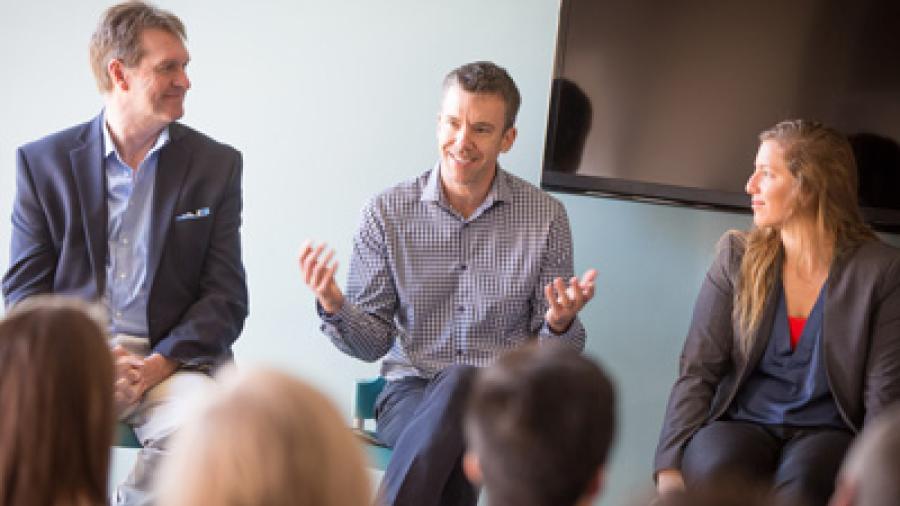| Plenary Address: "Racial Equity: Higher Education's Unpaid Debt" Estela Bensimon, University of Southern California |
|
| Westmont Chapel Service: "Christianity at the Door of No Return" Reggie Williams, McCormick Theological Seminary |
|
| Plenary Address: "Race, Ethnicity and Alterity: Lessons from the Study of Religion" Rudy Busto, University of California, Santa Barbara |
|
| Plenary Address: "Educated in Tyranny: An Institution Grappling with its Legacy of Slavery" Louis P. Nelson, University of Virginia |
|
| Gaede Institute Public Lecture: "Race, Memory, and Monuments After Charlottesville" Louis P. Nelson, University of Virginia Public lecture following the Conversation |
Below is the schedule of Conversation plenary events. Concurrent panels and paper manuscripts will be published approximately two weeks from the start of the Conversation.
Thursday, February 27 |
|
|
2:45 pm |
Shuttles depart waterfront hotels for campus (drop off at Global Leadership Center) |
|
3:00 pm |
Registration | Global Leadership Center |
|
3:30 pm |
Welcome and Introduction | Global Leadership Center Plenary Address: "Racial Equity: Higher Education's Unpaid Debt" | Global Leadership Center |
|
5:30 pm |
Dinner in groups at downtown restaurants (included in conference fee) |
Friday, February 28 |
|
|
8:30 am |
Shuttles depart waterfront hotels for campus (drop off at Global Leadership Center) |
|
8:30 am |
Coffee and pastries | Global Leadership Center |
|
9:00 am |
Plenary Discussion: "Inclusive Teaching and Learning" | Global Leadership Center |
|
10:30 am |
Westmont Chapel Service: "Christianity at the Door of No Return" | Murchison Gymnasium |
|
11:30 am |
Concurrent Session 1 |
|
1a. Institutional Initiatives for Diversity and Inclusion | GLC Classroom (chair Tatiana Nazarenko) "Raising Institutional Awareness and Pedagogical Sensitivity: An Analysis of Pepperdine’s Seaver College Faculty Participation in SEED" "Assessing Diversity and Inclusion Strategies within Canadian Universities" |
|
|
1b. Christian Liberal Arts Education as Borderland: North Park University | Hieronymus Lounge (chair David Burrows) "To and From the Borderlands: Reimagining the Liberal Arts in the Spaces of Racial Inequality" |
|
|
1c. Engaging Majority Culture | Alumni Gallery (chair Meredith Whitnah) "Whiteness as Witness: Re-Conceptualizing Diversity in Christian Higher Education" "Listening: A Catalyst for Lasting Change" |
|
|
12:45 pm |
Lunch | Magnolia Lawn (rain location Founders Dining Room) |
|
1:45 pm |
Concurrent Session 2 |
|
2a. Student Voices | Hieronymus Lounge (chair Ogechi Nwaokelemeh) Panel discussion with Westmont students Miah Williams, Brendan Fong, and Caitlyn Wells |
|
|
2b. Reading, Canon, and Institutional Change | GLC Classroom (chair Kya Mangrum) "Confront and Remake: Literary Reading and Institutional Racial Justice, or Learning to Read with Alice Walker, Edwidge Danticat, and Chimamanda Ngozi Adichie" "The Education (or Mis-Education?) of W.E.B. DuBois, Martin Luther King, and Toni Morrison" "Loose Cannons: Toni Morrison and Jacques Derrida on the Necessity and Violence of Our Shared Literature" |
|
|
2c. Curricular Interventions | Alumni Gallery (chair Rick Pointer) "Scaffolding Support in Gateway Courses" "An Inclusive Vision for Honors Education" |
|
|
3:00 pm |
Coffee Break | Global Leadership Center |
|
3:30 pm |
Plenary Address: "Race, Ethnicity and Alterity: Lessons from the Study of Religion" | Global Leadership Center |
|
5:30 pm |
Dinner | Founders Dining Room |
|
6:30 pm |
Shuttles return to waterfront hotels (pickup at Kerr Student Center Parking Lot) |
Saturday, February 29 |
|
|
8:15 am |
Shuttles depart waterfront hotels for campus (drop off at Global Leadership Center) |
|
8:15 am |
Coffee and pastries | Global Leadership Center |
|
9:00 am |
Concurrent Session 3 |
|
3a. Wholesale Curricular Revision: Agnes Scott College | Hieronymus Lounge (chair Ed Song) "Liberal Education Cultivating Racial Justice: A General Education Case Study" |
|
|
3b. Barriers to Inclusion and Equity | Alumni Gallery (chair Dinora Cardoso) "#existingwhileblack: The Psychological Burden of Anti-Black Racism in the Liberal Arts" "The Purpose of Education: Cultivating Racial Justice for Latinx Students" |
|
|
10:15 am |
Plenary Address: "Educated in Tyranny: An Institution Grappling with its Legacy of Slavery" | Global Leadership Center |
| 12:00 pm | Lunch (grab-and-go available) |
|
12:30 pm |
Shuttles return to waterfront hotels (pickup at Global Leadership Center) |
"Still Dreaming: Race, Ethnicity, and Liberal Arts Education"
February 27-29, 2020 | Westmont College, Santa Barbara, CA
In what ways has liberal education, past and present, fostered racial privilege? How can liberal education cultivate racial justice?
Advocates of liberal arts education have long understood themselves as essential contributors to a society that is more prosperous, more integrated, and more just. But their vision of a better society has often been narrow and self-interested; it has privileged certain voices and priorities and systematically excluded others. This contradiction has been especially evident with respect to race and ethnicity. With a few notable exceptions—for example, HBCUs, or colleges that made antislavery or civil rights fundamental to their identities—modern liberal arts institutions have historically replicated, defended, or even promoted racially based patterns of inclusion and exclusion. Nonwhite students continue to be underrepresented at these institutions, and nonwhite faculty and staff often struggle to own and shape the identities of their colleges and universities.
Recent developments in American society have laid bare these longstanding patterns of exclusion, and liberal arts institutions are grappling in new ways with the very present legacies of racial inequity on their own campuses. There are questions of access: Who should enjoy the benefits of a broad and integrated education, and how do they get in the door? There are questions of power: Who shapes the ethos of campus life, determines the academic curricula, or set the standards for professional advancement? There are deep structural questions: If liberal arts institutions have been products of and contributors to the racial status quo, is there hope that they can articulate and pursue a genuinely inclusive vision of higher education?
The nineteenth annual Conversation on the Liberal Arts will gather scholars, administrators, students, and practitioners to consider these questions and more.
Who should attend?
- Faculty and administrators who wish to begin, broaden, or sharpen conversations about racial justice at their institutions;
- Scholars whose research illumines the relationship between race and education in America;
- Student life professionals who are working to create inclusive communities;
- Undergraduate and graduate students whose scholarship or experience gives them insight into the challenges of inclusivity on campus;
- Practitioners whose work gives them perspective on the ways race operates in the arena of higher education;
- Anyone with an interest in the value and practice of liberal education.
The deadline for submitting proposals is November 15, 2019.
"This conference has reminded me, after some time wandering in the proverbial desert, of why I got into academics in the first place."
—Conversation on the Liberal Arts participant
Format
The Conversation on the Liberal Arts is not a typical academic conference. We have great speakers, and we have much to learn from them. But all of us are engaged in this work everyday, so we also have much to learn from each other. To stimulate this mutual teaching and learning, we keep the conference small; we anticipate fewer than 100 participants. Plenary sessions include as much time for participants' questions and contributions as they do for the speakers' talks. Concurrent sessions are opportunities for discussion between presenters and attendees about key elements of the presenter's work. And there is ample time for informal conversation over meals and coffee—often the most fruitful moments of the conference. The crucial element throughout is conversation, where we can all benefit from each other's insights.
Participants
We also profit from a wide range of perspectives. This is a conference where administrators, scholars, students, and practitioners can talk to each other about how the issues look from their different positions, and where those from large universities and small liberal arts colleges, from public institutions and private, from faith-based institutions and those with no religious affiliation can explore shared challenges from our differing contexts. Attendees consistently remark on the distinctively personal tone of these three days, praising the diverse, face-to-face dialogue that often is missing at academic gatherings.
In short, the Conversation on the Liberal Arts is a hospitable place for dialogue across what are too often boundaries in higher education—dialogue about the shared challenges, and especially the shared promise, of liberal arts education. We hope you'll join us!
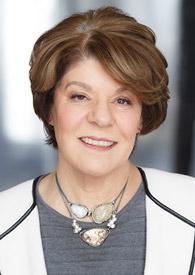 |
Estela Mara Bensimon is a professor of higher education at the USC Rossier School of Education and Director of the Center for Urban Education, which she founded in 1999. Among her most celebrated work is the Equity Scorecard, a tool for identifying and addressing inequality in higher education. Dr. Bensimon is the recipient of the 2017 Social Justice in Education Award, presented by the American Education Research Association, as well as the 2015 American Association of Hispanics in Higher Education (AAHHE) Outstanding Latina Faculty Award for Research and Teaching. |
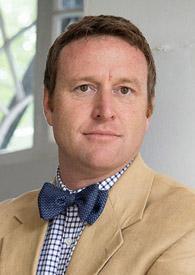 |
Louis P. Nelson is Professor of Architectural History and the Vice Provost for Academic Outreach at the University of Virginia. His research engages the built environments of slavery, including the racialized landscape of the University of Virginia itself. His work in academic outreach supports a robust curricular program grounded in community partnerships and a commitment to the education of students for socially responsible, engaged citizenship. |
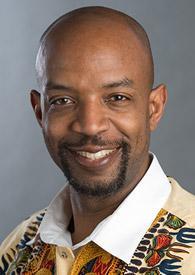 |
Reggie Williams is an ethicist specializing in the thought of the Harlem Renaissance. His most recent book, Bonhoeffer’s Black Jesus, explores how a postdoctoral year in Harlem shaped German theologian Dietrich Bonhoeffer’s theology and practice; his current book project illumines the Harlem Renaissance’s religious critique of whiteness. Dr. Williams is a professor of Christian ethics at McCormick Theological Seminary. |
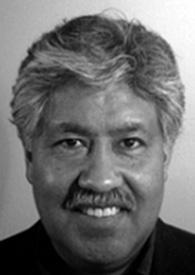 |
Rudy Busto is a scholar of religion at the University of California, Santa Barbara, with specialties in Latinx religion, religion in the American West and Pacific Rim, indigeneity, and the transformation of world religions in the US. He has worked to push out the disciplinary boundaries of religious studies, seeking to uncover hidden and subjugated histories and actors in American religion, but also examining how the study of religion itself has been structured by assumptions about race and ethnicity. |
|
Regular Registration |
$300 |
| Student Discount for undergraduate and graduate students | -$100 |
Registration for this event has closed.
Participant Information
A Word About Format
As the title of our event suggests, these days are intended to be an extended conversation rather than a traditional academic conference, and participants will be coming from a wide variety of backgrounds and professional roles. With these considerations in mind, we recommend the following, especially as you prepare for concurrent panels.
- For All Participants
Please come to the panels having read and processed the authors’ work and prepared to engage in discussion with your colleagues. The full texts of concurrent papers are available on the conference website under “Conversation Schedule" (above). We encourage you to treat concurrent and plenary discussions as real conversations, in which all are welcome to initiate and respond, rather than as traditional Q&A sessions between “experts” and “audience.”
- For Concurrent Presenters
Plan to use no more than five minutes to summarize your paper, focusing on key ideas and areas for further discussion, and taking care to make your work accessible to a broad audience of non-specialists. As a part of these introductory remarks, we encourage you to pose some formal, well-considered questions for discussion among your colleagues. Paper handouts are welcome; AV equipment will not be provided except by special arrangement.
- For Moderators
We've allowed 60 minutes for each concurrent session. Please politely enforce five-minute limits for individual presentations, leaving the majority of the time for conversation. Beyond this recommendation, format is at your discretion. Feel free to manage the time and discussion leadership in a manner that suits the room and the material at hand. Do try, of course, to balance the conversation so as to give roughly equal time to each paper, and be prepared to seed discussion with your own questions or comments if conversation flags. Please make every effort to end on time, giving your colleagues ample chance for a break before the next session.
Flying
The Santa Barbara Airport is just 20 minutes from campus, and 15 minutes from waterfront hotels. Rental car and taxi services are conveniently located on site. Los Angeles International Airport is a 75-minute drive from Santa Barbara; from there, the Santa Barbara Airbus ($50 one way) takes you directly to the complex of waterfront hotels that will be served by our campus shuttle. Amtrak is not cheaper or more convenient, as it requires a shuttle to and from LA Union Station. However, the train provides spectacular views of the LA basin and Pacific coastline.
Driving and Parking
Driving directions to campus may be found here. A map of campus may be found here. Parking at Westmont is free and no permit is necessary in any lot. The best parking options are the Global Leadership Center Lot or the Kerr Student Center Parking Lot (P1 on map):
- Global Leadership Center Lot: Enter through the lower campus gate (hard left turn off Cold Springs Road), then make an immediate right to follow a smaller campus road parallel to Cold Springs. That road turns sharply left at a collection of golden-tan buildings; that is the Global Leadership Center. Additional parking is available as you continue on this road back toward the main campus loop.
- Kerr Student Center Lot: This lot usually has plentiful parking, but is slightly further from the GLC. To get there, bypass the lower entrance, then bear left at the fork in Cold Springs Rd., then left again to go through the large stone upper campus gate. Once you're through the gate, make an immediate left into a large parking lot (if you find yourself on a circular drive bordering a large lawn, you've gone slightly too far). From there, registration at the GLC is just to the south; from the lot, walk downhill on the path bordering Kerr Student Center, then bear left across the long footbridge. The GLC is the collection of golden-tan buildings just across the bridge.
Train
The Santa Barbara train station is at the lower end of downtown, a short taxi ride, or 20-minute walk, from East Beach hotels.
Campus Shuttle
Shuttle service will be provided between campus and the hotels listed below. Shuttles will run at the beginning and end of the program each day (see "Shuttle Information" tab for more).
Accommodations
The campus shuttle will serve only the hotels adjacent to East Beach (see the "Shuttle Information" tab for shuttle stop locations). You may wish to stay elsewhere, but please be aware that you will be responsible for arranging your own transportation to and from conference events. Shuttle-line hotels include:
- The Hilton Santa Barbara Beachfront Resort
- Santa Barbara Inn
- Hyatt Centric Santa Barbara (served directly by the Santa Barbara Airbus from LAX)
- The Inn at East Beach
- Cabrillo Inn at the Beach
- Pacific Crest Santa Barbara
- Motel Six
The shuttle will run between campus and select local hotels. City buses and local trolleys stop at these locations, too, so be sure to look for the Westmont shuttle. There are two shuttle stops: East Beach and Hilton, both on Cabrillo Boulevard (see below for precise locations).
Shuttle Stops
- The East Beach stop is just to the east of the Hyatt, and serves all waterfront lodging except the Hilton. From these hotels, most participants will walk to the beachfront boulevard (Cabrillo) and turn left. The stop is a bus turnout at the corner of Cabrillo and Ninos Dr. View in Google Maps
- The Hilton stop is just to the east of the Hilton Santa Barbara Beachfront Resort, and serves this hotel only. Exit the front of the Hilton, toward the beach. Turn left and walk along the waterfront until you see a large rainbow arch sculpture. The shuttle stop is directly in front of this sculpture on Cabrillo Boulevard. View in Google Maps
Shuttle Schedule
Shuttles run once at the beginning and once at the end of each program day:
| Thursday, February 27 | |
| Depart waterfront hotels for Westmont campus | 2:45pm |
| Depart campus for waterfront hotels | 5:30pm |
| Friday, February 28 | |
| Depart waterfront hotels for campus | 8:30am |
| Depart campus for waterfront hotels | 6:30pm |
| Saturday, February 29 | |
| Depart waterfront hotels for campus | 8:15am |
| Depart campus for waterfront hotels | 12:30pm |
